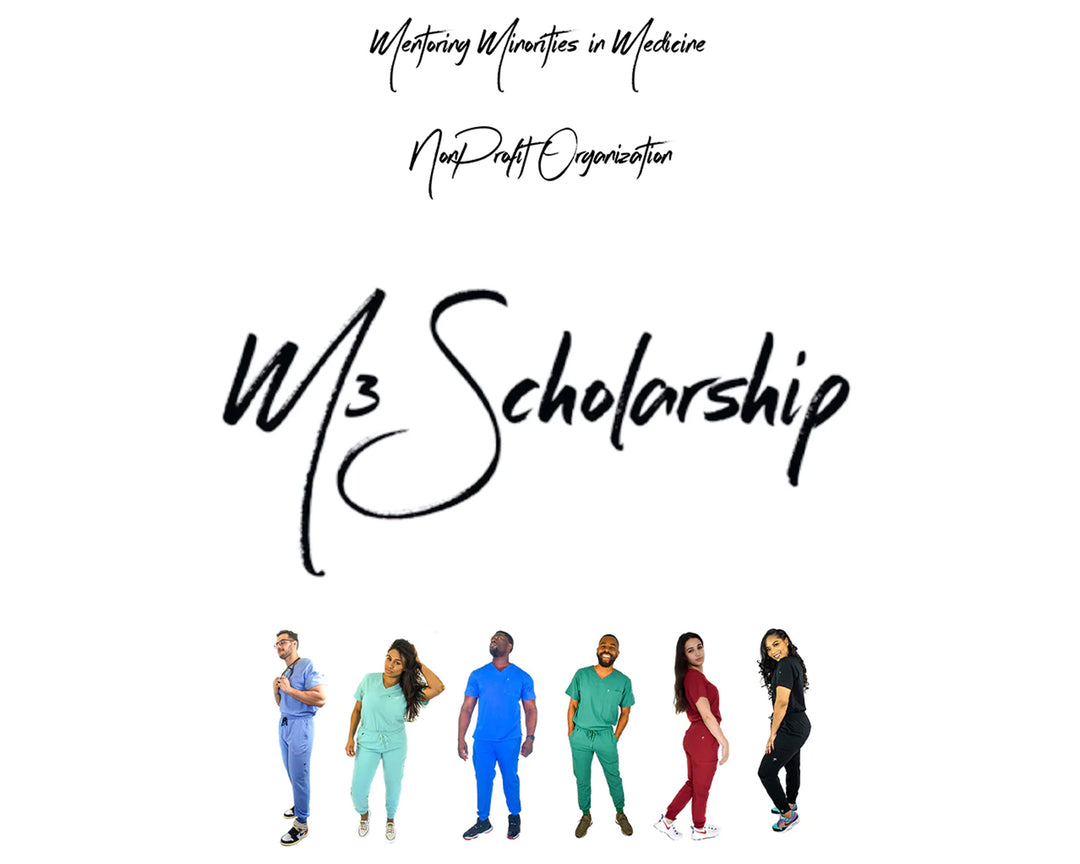Mentoring Minorities in Medicine: A Non-Profit Organization to Change the Narrative
Mentoring Minorities In Medicine M3 E-Board
I was about 12 years old when I decided I wanted to become a physician. As I reflect on my journey, I’ve realized that it was only by the grace of God that I overcame the many mountains in my path. Medical school was a constant battle of attempting to learn medicine while being stereotyped by colleagues and patients. I received less than favorable glares and remarks after introducing myself to patients as Student Doctor Olusanya. And I heard the term affirmative action tossed around by my peers on more occasions than I can count. Yet, I persevered knowing that making it to the finish line was imperative because so many people were counting on me.
on my journey, I’ve realized that it was only by the grace of God that I overcame the many mountains in my path. Medical school was a constant battle of attempting to learn medicine while being stereotyped by colleagues and patients. I received less than favorable glares and remarks after introducing myself to patients as Student Doctor Olusanya. And I heard the term affirmative action tossed around by my peers on more occasions than I can count. Yet, I persevered knowing that making it to the finish line was imperative because so many people were counting on me.
As a current resident physician, I expect these types of encounters and remarks to continue. But it’s my duty to eradicate these prejudice thoughts as I strive to be an example for the next group of aspiring Black physicians. It is well known that Black/African-Americans physicians are drastically underrepresented across all specialties in medicine. The purpose of the Mentoring Minorities in Medicine (M3) non-profit organization is to change this narrative. Through our scholarship and mentoring opportunities, we hope to support those who are next in line.
DR. ADEDEJI OLUSANYA, D.O.
Unlike several of my colleagues, I did not know that I wanted to be a doctor for “as long as I can remember.” In fact, I was pretty confident that I would be a teacher. I spent a great portion of my childhood and adolescent days tutoring my peers at school while playing make-believe school with my younger siblings at home in our makeshift classroom. In addition, I was an extremely healthy kid and had very little contact with the healthcare system outside of an annual well child exam or sports physical. There were no doctors in my family or any of my friends’ families. To be honest, being a doctor wasn’t even on my radar.
I spent a great portion of my childhood and adolescent days tutoring my peers at school while playing make-believe school with my younger siblings at home in our makeshift classroom. In addition, I was an extremely healthy kid and had very little contact with the healthcare system outside of an annual well child exam or sports physical. There were no doctors in my family or any of my friends’ families. To be honest, being a doctor wasn’t even on my radar.
However, a trip to Nigeria in 2007 inspired a new path. During my month-long stay, I was a first-hand witness of how unfavorable living conditions and lack of resources lead directly to adverse health outcomes. It was extra personal being that this was the country that so many of my relatives call home. I returned to the United States with a newfound perspective coupled with a passion to serve these types of populations. I found myself becoming more in tune with similar barriers faced by the underserved populations in my own backyard. I started realizing how underserved populations, most notably people of color, experienced disparities across the board. Disparities in healthcare were just one element of the struggle.
Fast-forward to medical school, as one of the handful of Black medical students in my class, the passion to tackle these disparities grew. I lost count of how many medical school lectures I sat through highlighting the disheartening statistics that demonstrated worse health outcomes in Black populations. It didn’t matter what we were learning. Higher rates of morbidity and mortality in Black populations seemed to be the common theme. Data has shown that Black folks have better outcomes under the care of Black physicians. Data has also shown that only 5% of doctors in the U.S. identify as African-American or Black. My goal as a Black physician is to help improve the health outcomes of our community while supporting the next group of aspiring Black doctors. To save Black lives, we need more Black doctors.
Choosing a career in medicine affords you the privilege to connect with patients during some of the most vulnerable moments of their lives. It still catches me by surprise when I notice a sigh of relief, a “I’m so glad you’re here”, or a subtle smile and nod to acknowledge the fact that their physician is Black. I specifically chose to pursue a career in OBGYN because I am passionate about women’s health and know how important and crucial the representation of Black women in my field is given the current increased rates of Black maternal mortality/morbidity. With recent statistics noting that only about 5% of all US physicians are Black and of that 2% Black women, I am even more motivated to help increase these numbers. Growing up I was fortunate to have an example of a Black physician in my father, but I know for many of my peers and aspiring physicians this was not the case. When I still hear comments from patients saying that I’m the first Black physician they’ve seen, I know that we need more of us out there. Thinking about my journey through medicine, I would not be where I am today without impactful student organizations like the Minority Association of Pre-medical Students and mentorship from devoted individuals who invested in me and pushed me to keep going. I believe that in going through this process myself, I can now act as a resource for the upcoming aspiring physicians who come after me. This is why I am so happy to be apart of the Mentoring Minorities in Medicine Organization. My hope is that with this scholarship we are able to help minority aspiring physicians with financial resources to aid in matriculating into medical school. In addition, offering mentorship that will help guide and provide students with the tools to succeed and make an even bigger impact in the field of medicine.
With recent statistics noting that only about 5% of all US physicians are Black and of that 2% Black women, I am even more motivated to help increase these numbers. Growing up I was fortunate to have an example of a Black physician in my father, but I know for many of my peers and aspiring physicians this was not the case. When I still hear comments from patients saying that I’m the first Black physician they’ve seen, I know that we need more of us out there. Thinking about my journey through medicine, I would not be where I am today without impactful student organizations like the Minority Association of Pre-medical Students and mentorship from devoted individuals who invested in me and pushed me to keep going. I believe that in going through this process myself, I can now act as a resource for the upcoming aspiring physicians who come after me. This is why I am so happy to be apart of the Mentoring Minorities in Medicine Organization. My hope is that with this scholarship we are able to help minority aspiring physicians with financial resources to aid in matriculating into medical school. In addition, offering mentorship that will help guide and provide students with the tools to succeed and make an even bigger impact in the field of medicine.
DR. REMI OMOTAYO, M.D.
OBSTETRICS AND GYNECOLOGY PGY-3
LSU NEW ORLEANS
As a Black individual in medicine, you often get used to being in the minority and having only a handful of others who look like you.  In medical school, a mere 3% of
In medical school, a mere 3% of
my medical school was Black or African-American. Fast forward to residency, only 5% of my entire residency class is Black or African-American. Meanwhile, around 13% of the U.S. population identifies as Black or African-American. There’s a huge discrepancy and it’s reflective in our patient outcomes. I’m passionate about helping to increase these numbers while supporting other minorities to pursue careers in a field that does not reflect the patient population. I hope through the Mentoring Minorities in Medicine – M3 Scholarship we can do just that
DR. ANDREW TUCKER, D.O.
ANESTHESIA PGY-1
UNIVERSITY OF FLORIDA






